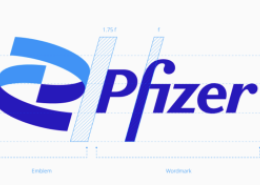CHANTIX®/CHAMPIX® (varenicline) Results from the Largest Global Clinical Trial of Smoking Cessation Medicines Published in The Lancet
Authors conclude no significant increase in serious neuropsychiatric adverse events with CHANTIX/CHAMPIX relative to placebo or nicotine patch Smokers treated with CHANTIX/CHAMPIX had significantly higher quit rates than those treated with bupropion, nicotine patch or placebo
“Forward-Looking Information and Factors That May Affect Future Results”
Pfizer Inc. (NYSE:PFE) today announced results published in The Lancet from the largest clinical trial of approved smoking cessation medicines, called EAGLES (Evaluating Adverse Events in a Global Smoking Cessation Study). This smoking cessation trial included 8,144 adult smokers and was designed to compare the neuropsychiatric safety of CHANTIX®/CHAMPIX® (varenicline) and bupropion with placebo and nicotine patch in adult smokers with and without a history of psychiatric disorders. The authors concluded that the trial did not show a significant increase in the incidence of the composite primary safety endpoint of serious neuropsychiatric adverse events with CHANTIX/CHAMPIX or bupropion compared to placebo and nicotine patch. Differences between incidence rates were considered significant if their associated 95% confidence intervals (CIs) were entirely above or below zero. Approximately half of the trial participants had a history of psychiatric disorders, either past and in remission or present and clinically stable. The psychiatric diagnoses included primarily depressive, bipolar, anxiety and psychotic disorders.
The EAGLES trial also included an efficacy objective to determine smoking abstinence rates in patients treated with CHANTIX/CHAMPIX or bupropion, relative to placebo, during the last four weeks of the 12-week treatment period. Continuous abstinence was also evaluated relative to the nicotine patch. In addition, longer-term abstinence through a 12-week non-treatment follow-up period (weeks 9-24) was evaluated for all treatments. The results showed that patients with and without a history of psychiatric disorders taking CHANTIX/CHAMPIX had significantly higher continuous abstinence rates than patients treated with bupropion or nicotine patch during both time periods. Patients treated with each of the medications had higher abstinence rates than those treated with placebo. This is the first placebo-controlled trial of this size to directly compare the efficacy of CHANTIX/CHAMPIX, bupropion and nicotine patch to help people quit smoking.1
“Clinical practice guidelines recommend that the most effective way for smokers to quit is by combining a smoking cessation medication with counseling.2 However, smoking cessation support is often underutilized, due in part to misperceptions about the effectiveness and safety of smoking cessation medicines,”3 said lead study investigator Robert M. Anthenelli, M.D., Professor of Psychiatry, University of California, San Diego, California. “This study offers important new information to prescribers and smokers to help them make an informed decision about smoking cessation treatment options.”
The primary safety endpoint of the EAGLES trial was defined as the occurrence of at least one treatment-emergent severe adverse event of anxiety, depression, feeling abnormal, or hostility and/or the occurrence of at least one treatment-emergent moderate or severe adverse event of agitation, aggression, delusions, hallucinations, homicidal ideation, mania, panic, paranoia, psychosis, suicidal ideation, suicidal behavior or completed suicide.
The incidence of the primary safety endpoint in patients without a history of psychiatric disorders was 1.3% (CHANTIX/CHAMPIX), 2.2% (bupropion), 2.5% (nicotine patch) and 2.4% (placebo). The incidence rates in patients with a history of psychiatric disorders were 6.5% (CHANTIX/CHAMPIX), 6.7% (bupropion), 5.2% (nicotine patch) and 4.9% (placebo). In patients without a history of psychiatric disorders, the CHANTIX/CHAMPIX–placebo and bupropion–placebo risk differences (RDs) for the primary safety endpoint were −1.28 (95% CI −2.40 to −0.15) and −0.08 (−1.37 to 1.21), respectively. The RDs for CHANTIX/CHAMPIX-nicotine patch and bupropion-nicotine patch comparisons were −1.07 (−2.21 to 0.08) and 0.13 (−1.19 to 1.45), respectively. In patients with a history of psychiatric disorders, the CHANTIX/CHAMPIX–placebo and bupropion–placebo RDs were 1.59 (−0.42 to 3.59) and 1.78 (−0.24 to 3.81), respectively; the RDs for CHANTIX/CHAMPIX-nicotine patch and bupropion-nicotine patch comparisons were 1.22 (−0.81 to 3.25) and 1.42 (−0.63 to 3.46), respectively. Across both patient cohorts, 95% CIs associated with these RDs were lower than or included zero. There were more neuropsychiatric adverse events in the psychiatric cohort than the non-psychiatric cohort across all treatment arms including placebo.4
Across the trial population, the most frequent adverse event by treatment group was nausea (25%, CHANTIX/CHAMPIX), insomnia (12%, bupropion), abnormal dreams (12%, nicotine patch) and headache (10%, placebo).4
“Smoking is one of the leading preventable causes of death worldwide,5 and the benefits of quitting are immediate and substantial,”6 said Freda Lewis-Hall, M.D., DFAPA, Chief Medical Officer and EVP, Pfizer Inc. “These data from the EAGLES study build on the large body of clinical evidence characterizing the neuropsychiatric safety and efficacy of CHANTIX/CHAMPIX, which supports CHANTIX/CHAMPIX as an important treatment option for people who want to quit smoking.”
The CHANTIX/CHAMPIX labeling includes a warning/boxed warning regarding serious neuropsychiatric adverse events that have been reported in some patients attempting to quit smoking while taking CHANTIX/CHAMPIX in the post-marketing experience. Some people have had changes in behavior, hostility, agitation, depressed mood, and suicidal thoughts or actions while using CHANTIX/CHAMPIX to help them quit smoking. If the CHANTIX/CHAMPIX patient, their family or caregiver notices any of these symptoms or behaviors, they should stop taking CHANTIX/CHAMPIX and call their doctor right away. They should tell their doctor about any history of depression or other mental health problems, which could get worse while taking CHANTIX/CHAMPIX.
About EAGLES
EAGLES is a multi-center, parallel-group, post-authorization safety study/post-marketing requirement (PASS/PMR), which was conducted in 16 countries by Pfizer in collaboration with GlaxoSmithKline. The trial was conducted at the request of, and designed in consultation with, the U.S. Food and Drug Administration (FDA) and the European Medicines Agency (EMA) to compare the risk of clinically significant neuropsychiatric events, including but not limited to suicidality, in individuals using CHANTIX/CHAMPIX, bupropion, nicotine replacement therapy or placebo as aids to smoking cessation over 12 weeks of treatment, and to determine whether individuals with a history of psychiatric disorders are at greater risk for developing clinically significant neuropsychiatric events compared to individuals without a history of psychiatric disorders while using CHANTIX/CHAMPIX or bupropion as an aid to smoking cessation. Data limitations included: the findings may not generalize to smokers with untreated or unstable psychiatric disease, and the trial had limited power to detect rare neuropsychiatric events.
About CHANTIX®
CHANTIX® (also known as CHAMPIX® in the EU and other countries) was approved by the FDA in May 2006 as a prescription medication that, along with support, helps adults 18 and over stop smoking. Adults who smoke may benefit from quit- smoking support programs and/or counseling during their quit attempt. It’s possible that patients might slip up and smoke while taking CHANTIX/CHAMPIX. If patients slip up, they can stay on CHANTIX/CHAMPIX and keep trying to quit.
Important CHANTIX (varenicline) Safety Information
Some people have had changes in behavior, hostility, agitation, depressed mood, suicidal thoughts or actions while using CHANTIX to help them quit smoking. Some people had these symptoms when they began taking CHANTIX, and others developed them after several weeks of treatment or after stopping CHANTIX. If the CHANTIX patient, their family or caregiver notice any of these symptoms or behaviors, they should stop taking CHANTIX and call their doctor right away. They should tell their doctor about any history of depression or other mental health problems, which could get worse while taking CHANTIX.
Some people had seizures during treatment with CHANTIX. Most cases happened during the first month of treatment. Patients should tell their doctor if they have a history of seizures. If a patient has a seizure during treatment with CHANTIX, he/she should stop taking CHANTIX and contact his/her healthcare provider right away.
Patients should decrease the amount of alcohol they drink while taking CHANTIX until they know if CHANTIX affects their ability to tolerate alcohol. Some people experienced increased drunkenness, unusual or sometimes aggressive behavior, or memory loss of events while consuming alcohol during treatment with CHANTIX.
Patients should not take CHANTIX if they’ve had a serious allergic or skin reaction to it. If they develop serious allergic or skin reactions, including swelling of the face, mouth, throat, or a rash, they should stop taking CHANTIX and see their doctor right away as some of these can be life-threatening.
Patients should tell their doctor if they have a history of heart or blood vessel problems or have any new or worse symptoms during treatment with CHANTIX. Patients should get emergency medical help right away if they have any symptoms of a heart attack or stroke.
Dosing may be different for patients who have kidney problems. Until the patient knows how CHANTIX affects them, they should use caution when driving or operation machinery. Common side effects include nausea, trouble sleeping and unusual dreams. CHANTIX should not be taken with other quit-smoking products. Patients should tell their doctor which medicines they are taking as these medicines may work differently when quitting smoking.
Click here for full Prescribing Information, including BOXED WARNING and Medication Guide.
About Pfizer Inc.: Working together for a healthier world®
At Pfizer, we apply science and our global resources to bring therapies to people that extend and significantly improve their lives. We strive to set the standard for quality, safety and value in the discovery, development and manufacture of health care products. Our global portfolio includes medicines and vaccines as well as many of the world's best-known consumer health care products. Every day, Pfizer colleagues work across developed and emerging markets to advance wellness, prevention, treatments and cures that challenge the most feared diseases of our time. Consistent with our responsibility as one of the world's premier innovative biopharmaceutical companies, we collaborate with health care providers, governments and local communities to support and expand access to reliable, affordable health care around the world. For more than 150 years, Pfizer has worked to make a difference for all who rely on us. For more information, please visit us at www.pfizer.com. In addition, to learn more, follow us on Twitter at @Pfizer and @Pfizer_News, LinkedIn, YouTube and like us on Facebook at Facebook.com/Pfizer.
DISCLOSURE NOTICE: The information contained in this release is as of April 22, 2016. Pfizer assumes no obligation to update forward-looking statements contained in this release as the result of new information or future events or developments.
This release contains forward-looking information regarding CHANTIX/CHAMPIX, including its potential benefits, that involves substantial risks and uncertainties that could cause actual results to differ materially from those expressed or implied by such statements. Risks and uncertainties include, among other things, uncertainties regarding the commercial impact of the results of the EAGLES study; uncertainties regarding the impact of the EAGLES study on the product labeling for CHANTIX/CHAMPIX in the United States or other jurisdictions; the risk that clinical trial data are subject to differing interpretations, including by regulatory authorities; the uncertainties inherent in research and development; and competitive developments.
A further description of risks and uncertainties can be found in Pfizer’s Annual Report on Form 10-K for the fiscal year ended December 31, 2015 and in its subsequent reports on Form 10-Q, including in the sections thereof captioned “Risk Factors” and “Forward-Looking Information and Factors That May Affect Future Results,” as well as in its subsequent reports on Form 8-K, all of which are filed with the U.S. Securities and Exchange Commission and available at www.sec.gov and www.pfizer.com.
References:
1 Cahill K, Stevens S, Perera R, Lancaster T. Pharmacological interventions for smoking cessation: an overview and network meta-analysis. Cochrane Database Syst Rev 2013; 5: CD009329. doi: 10.1002/14651858.
2 Fiore MC, Jaeìn CR, Baker TB, et al. Treating Tobacco Use and Dependence: 2008 Update. Clinical Practice Guideline. Rockville, MD: U.S. Department of Health and Human Services. Public Health Service. May 2008.
3 Smith AL, Carter SM, Chapman S, Dunlop SM, Freeman B. Why do smokers try to quit without medication or counselling? A qualitative study with ex-smokers. BMJ Open 2015;5:e007301. doi:10.1136/bmjopen-2014-007301.
4 Anthenelli RM, Benowitz NL, West R, et al. Neuropsychiatric safety and efficacy of varenicline, bupropion, and nicotine patch in smokers with and without psychiatric disorders (EAGLES): a double-blind, randomised, placebo-controlled clinical trial.Lancet. 2016 Apr 19:e1-e14.[Epub ahead of print].
5 Centers for Disease Control and Prevention (CDC). Smoking & Tobacco Use Fast Facts.http://www.cdc.gov/tobacco/data_statistics/fact_sheets/fast_facts/index.htm#toll. Accessed April 1, 2016.
6 Centers for Disease Control and Prevention (CDC). The Surgeon General’s 1990 Report on the Health Benefits of Smoking Cessation Executive Summary – Preface. MMWR. 1990, 39(RR-12), 8-15.
Pfizer Inc.
Media:
Steven Danehy, 212-733-1538
[email protected]
or
Investors:
Ryan Crowe, 212-733-8160
[email protected]








